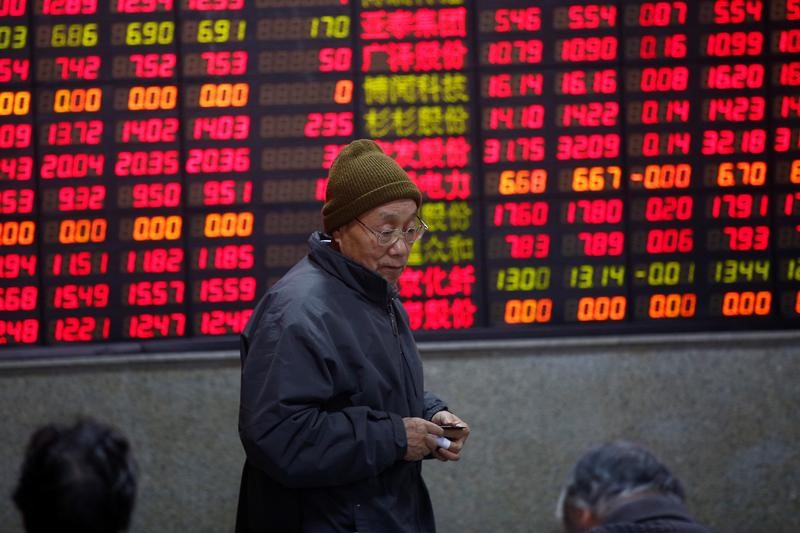By Dion Rabouin
NEW YORK (Reuters) - Capital flows to emerging markets will be negative in 2017 for a fourth straight year, driven by sizeable outflows from China, the Institute of International Finance said in a report released on Thursday.
The IIF estimates its group of 25 emerging market economies will see a total of $490 billion (390 billion pounds) of outflows this year. China is expected to see around $1 trillion of resident outflows including errors and omissions and $560 billion of net capital outflows.
Emerging markets excluding China should see inflows of $70 billion, nearly double the pace of 2016.
"While we project a slight uptick in capital flows in 2017, policy risks and potential deterioration in the global environment makes us cautious," said Hung Tran, IIF's executive managing director.
The expectation for overall negative capital flows in emerging markets is based largely on reduced expectations for foreign direct investment and portfolio equity investment.
FDI flows to emerging markets are expected to fall to their lowest level since the financial crisis, IIF said.
"A disturbing development over the past year has been the decline in foreign direct investment inflows to (emerging markets)," said Ulrik Bie, IIF's chief economist for global macroeconomics.
Outflows from China surged to a record $725 billion last year and could pick up further if U.S. firms face political pressure to repatriate profits, IIF said in a report released earlier this month.
Nonresident capital inflows should total $680 billion this year, $90 billion less than its projections before Donald Trump's surprise U.S. presidential election victory, according to the group's projections. That is up marginally from $676 billion of nonresident inflows to emerging markets in 2016. Capital inflows had fallen to a 12-year low in 2015.
The group says the biggest risk will be the level of protectionism imposed by developed economies and the outcomes of elections in Europe.
"The global economic outlook remains very uncertain, with an almost binary outcome likely to be determined by the severity of the protectionist measures to be introduced by the new Trump Administration and the outcome of the French presidential election," the IIF's report said.
